Crimeastan
From the Series: Ukraine and Russia: The Agency of War
From the Series: Ukraine and Russia: The Agency of War
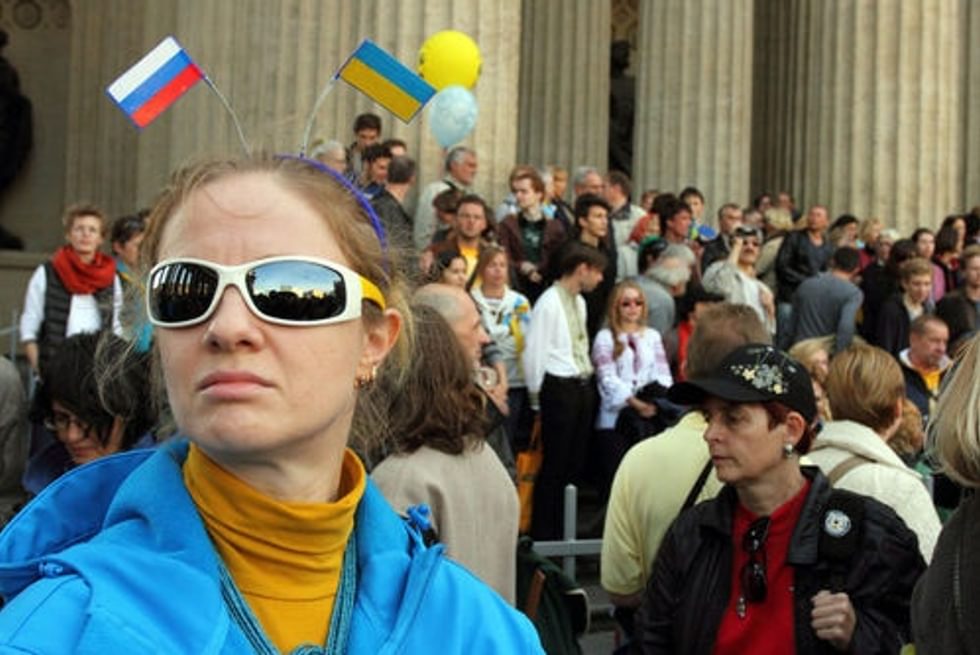
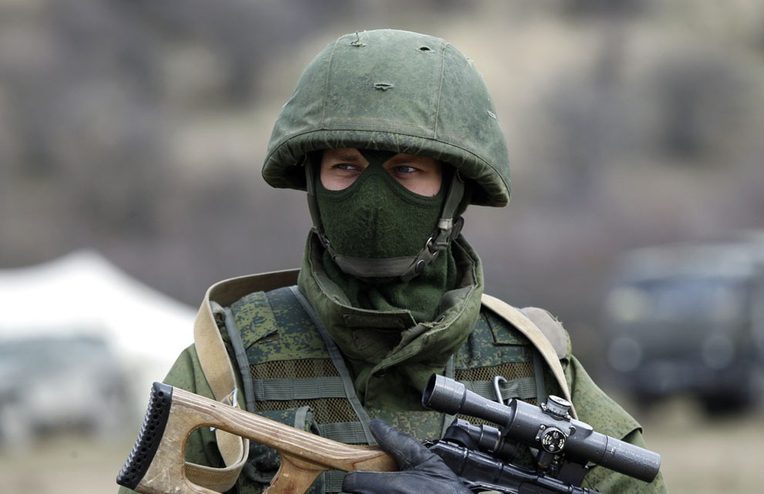
His cell phone number is scrawled inside the back cover of my field notebook: Sergey Aksyonov: 098-266-44-53. It’s 2013, and I am piloting a research project I plan to use for a monograph exploring idioms of belonging among Russians and Crimean Tatars in the Autonomous Republic of Crimea. I try the number several times, but my calls go straight to voicemail. I am, however, able to interview Russians in the headquarters of the Russian Unity party, beneath a campaign poster with his Mona Lisa smile.
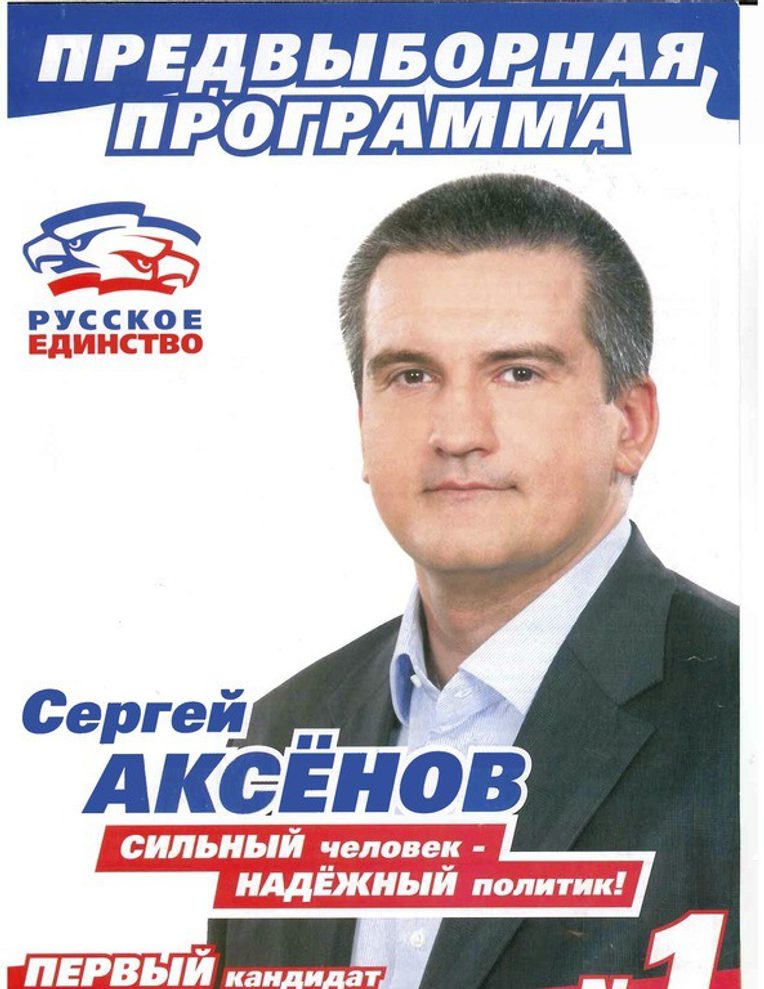
Aksyonov is now the Prime Minister of the Autonomous Republic of Crimea. He took the position in a Spring 2014 coup d’état that catapulted him from being a figure in the criminal underworld, where he was known as “the Goblin,” to acting Prime Minister. The coup began when tanks bearing troops without military insignias, but widely believed to be Russian military, rolled into Crimea. What were sarcastically referred to as “little green men” then took over. What Ukraine terms an unlawful “annexation” is, after the hasty referendum, called a voluntary “accession” by the Russian Federation. The Crimean Parliament recently considered a bill to put the little green men on salary to maintain law and order.
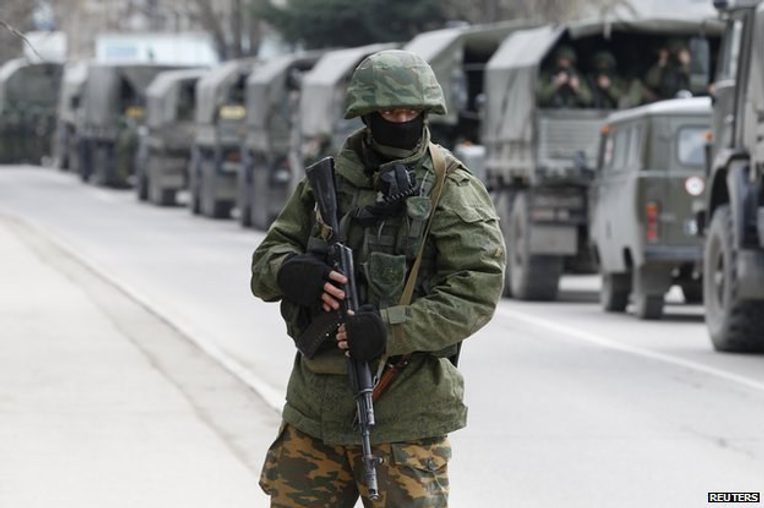
If an operative from the criminal underworld rising to become Prime Minister seems tragicomic, like something that could only happen in a Central Asian “absurdistan,” it is congruent with the rest of the transition period. Indeed, what Crimeans are experiencing is nothing short of a reordering of time and space. Crimeans were told to turn their clocks back a full two hours to run on Moscow time, and getting in and out of the peninsula has become difficult. Whereas it used to take less than twenty-four hours to get to Moscow by train, it now takes closer to 48 because travel has been re-routed around the tensions with Ukraine.
Waking in Crimeastan, residents found that familiar Ukrainian foods had been banned and replaced with more expensive Russian variants, and that the new state currency was in oddly short supply. ATMs and cell phones stopped working for days on end, and banks closed their doors. Passports, and loyalties, had to be exchanged. A Crimean psychologist appearing on an evening talk show described the situation best when she pointed out that people are afraid as a result of finding themselves in a different country, without having left their couches.
As the international community treats annexation as a fait accompli, it is important to realize that life in Crimea is not only odd but also frightening. This is in part because in the historical habitus of eastern European lives, the transformation of the peninsula is comprehended through memories of Stalinist terror, the 1944 deportation, and the practices of the Third Reich. The primary emotional currencies being exchanged right now are thus anxiety and fear. Few outside Crimea realize that searches and evictions of mass media outlets and religious institutions have become routine. Men in black balaclavas arrive without warning to search mosques for banned literature. They likewise ransack private homes looking for weapons and public schools looking for newspapers newly categorized as extremist. Crimean authorities invert the meaning of these intrusions by labeling them “protection” of the people. Only the bravest retain the courage to name these glaring contradictions. They are being punished severely. Two leaders of the Crimean Tatar opposition were prohibited from entering the peninsula, and an advocate heading to the UN had his passport confiscated in a kind of spatial incarceration. A friend revealed a more common sentiment when she texted me, “Now the smart people keep quiet.”
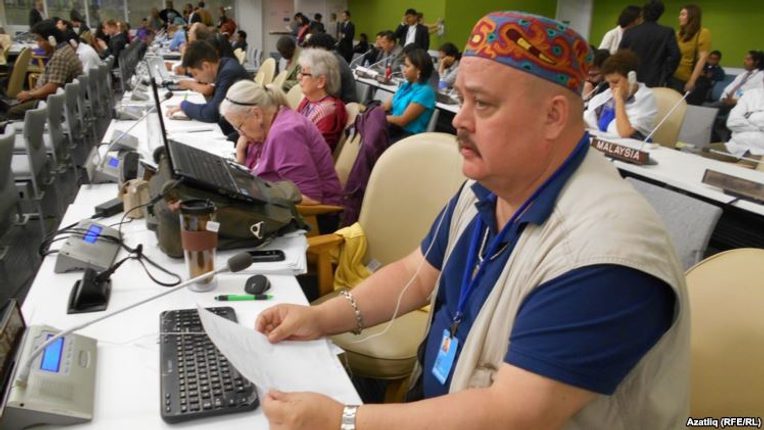
It is unremarkable that post-annexation Crimea has come to resemble what Agamben called a state of exception (Agamben 2005, 34). From the perspective of some Crimeans, “the law has become a joke” because it appears to be in the hands of those with submachine guns. Current developments are better understood, however, as a proliferation of discourses about legality, resulting in parallel sovereignties (Comaroff and Comaroff 2006) competing for authority. Rather than a suspension of law, Crimea appears to be experiencing something more akin to a spectacle of law. For example, the new constitution, impulsively thrown together and filled with typographical errors, was posted online overnight and then just as mysteriously taken down. The Crimean Rada, in a parody of government, boasted of hearing thirteen draft laws and passing two bills in one day.
What is remarkable is how far the fracturing of this society has progressed. With banished leaders, the indigenous Tatars are in the process of creating alternative religious and political bodies in the form a new Muftiat, Kirim Birligi, and an alternative Congress or Kurultai to work with the current authorities.
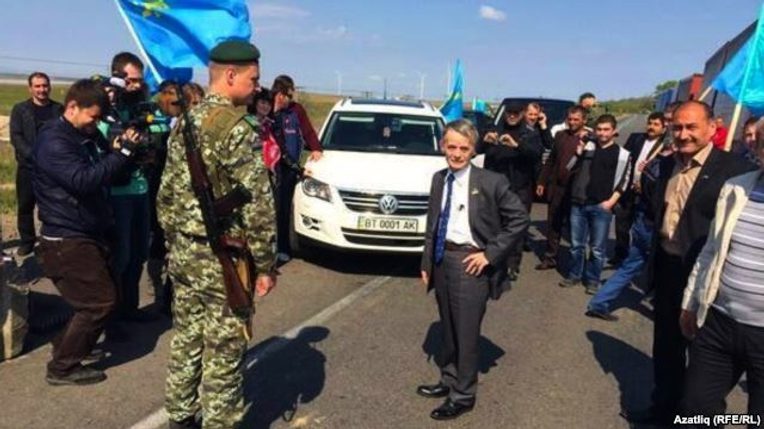
The shrinking space for dissent and the emotional substrate of anxiety and fear represents a stark contrast to the veritable insurrection of subjugated knowledges that took place when Crimea was part of Ukraine. Minarets had been put back on mosques, paintings of the previously suppressed deportation had gone up on billboards, medrese had reopened, and documentary films about the peninsula’s history had filled what Jones termed blank pages in Soviet history (1994).
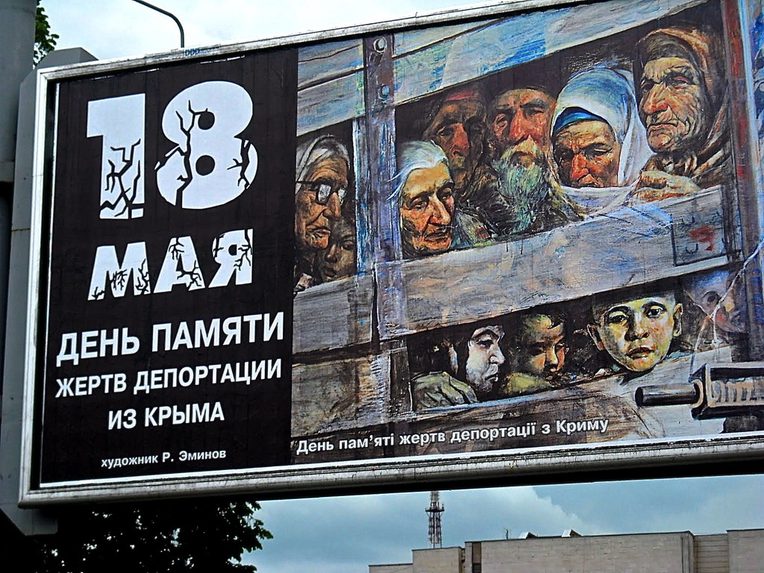
The difficulty with calling this geopolitical shift “Crimeastan” is that it conjures images of an obscure and distant place that we have the luxury of forgetting. We ignore these changes at our peril, not because Crimea is practically on Europe’s doorstep, but because they run so much deeper than an unfortunate twist of power politics.
Agamben, Giorgio. 2005. State of Exception. Translated by Kevin Attell. Chicago: University of Chicago Press.
Comaroff, John L., and Jean Comaroff. 2006. “Law and Disorder in the Postcolony: An Introduction,” in Law and Disorder in the Postcolony, edited by Jean Comaroff and John L. Comaroff, 1–56. Chicago: University of Chicago Press.
Jones, Stephen. 2004. “Old Ghosts and New Chains: Ethnicity and Memory in the Georgian Republic,” In Memory, History, and Opposition Under State Socialism, edited by Rubie Watson, 149–65. Santa Fe, N.M.: School of American Research Press.